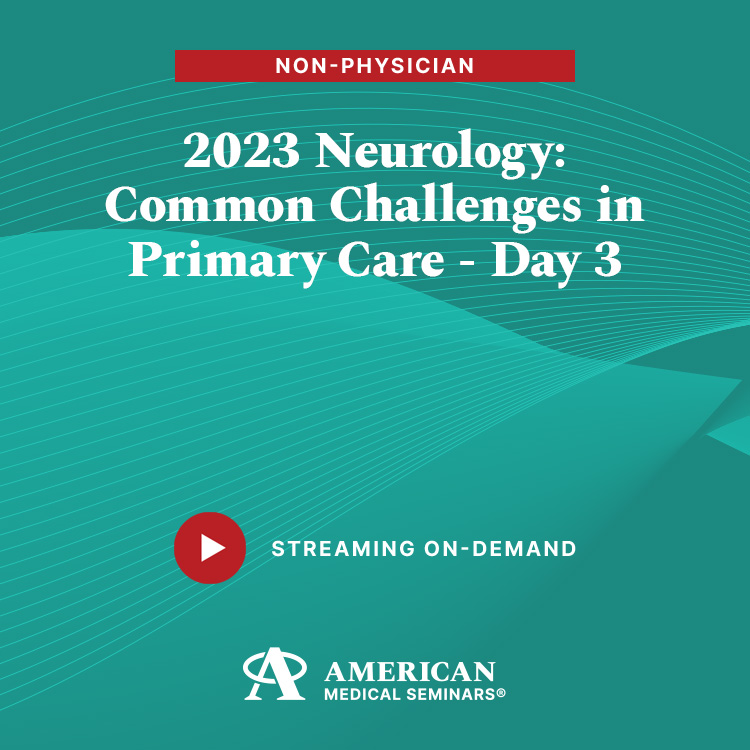Product Description
Title:2023 Neurology: Common Challenges in Primary Care – Day 3 (Non-Physician)
Faculty: Laurence J. Kinsella, M.D., F.A.A.N. and David E. Riley, M.D.
Release Date: 7/1/2023 Expiration Date: 7/1/2026
Day 3
Dementia
Upon completion of this session, the participant should be able to: COMP
- Evaluate patients with mild cognitive impairment or dementia.
- Diagnose the major syndromes associated with common causes of dementia.
- Distinguish the conditions that frequently mimic dementia.
- Manage major complications of dementia.
Multiple Sclerosis
Upon completion of this session, the participant should be able to: COMP,EBM
- Recognize the typical clinical features of multiple sclerosis.
- Initiate an appropriate series of diagnostic investigations.
- Formulate an approach to abortive and prophylactic therapy of multiple sclerosis using evidence-based medicine.
- Anticipate common medical complications of multiple sclerosis.
Peripheral Neuropathy and Neuropathic Pain Management
Upon completion of this session, the participant should be able to: COMP, EBM
- Define the spectrum of neuropathic signs, symptoms, and causes.
- Develop an approach to bedside examination.
- Discuss the mechanism of neuropathic pain.
- Apply effective therapies using evidence-based medicine.
An Approach to the Dizzy Patient
Upon completion of this session, using evidence-based medicine, the participant should be able to: COMP, EBM
- Detect common presentations of dizziness.
- Assess the pathophysiology of vertigo and nystagmus.
- Apply bedside techniques to distinguish dizziness subtypes and identify dangerous causes.
- Utilize potentially curative treatment for benign positional vertigo.
Libby Zion’s Lesson: Serotonin Syndrome and P450 Drug Interactions
Upon completion of this session, using evidence-based medicine, the participant should be able to: COMP
- Define the clinical features of common drug interactions.
- List the features of serotonin syndrome and distinguish from other Neurologic drug toxicities.
- Recognize potential drug interactions and determine how to predict them.
- Apply a simple clinical algorithm for anticipating and avoiding drug interactions.
- The receipt for any incentive-associated purchase will designate the value of the gift card separately from the cost of the learning activity.
- This incentive may have implications on your tax reporting obligations. Any reimbursed amount must be declared as personal income for tax purposes.


